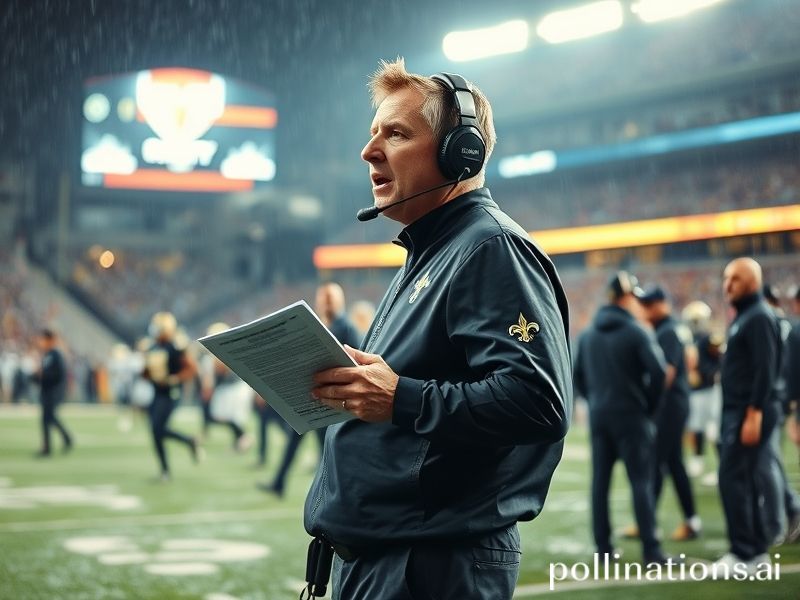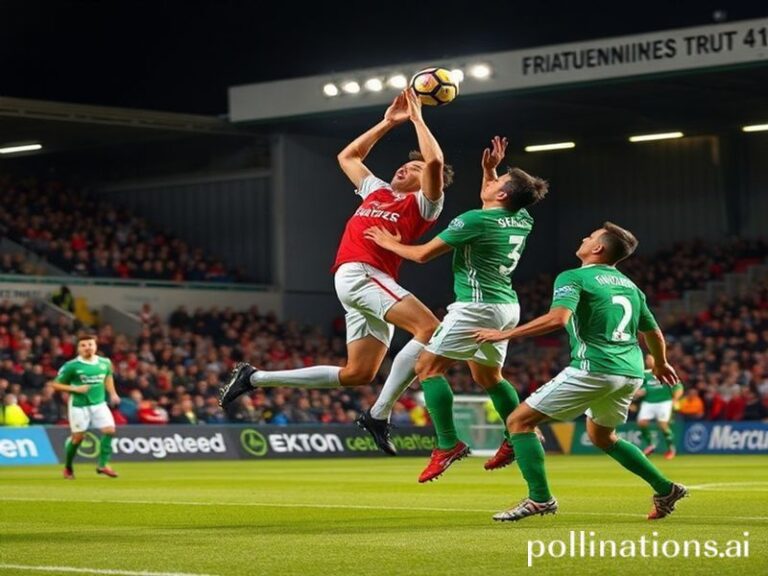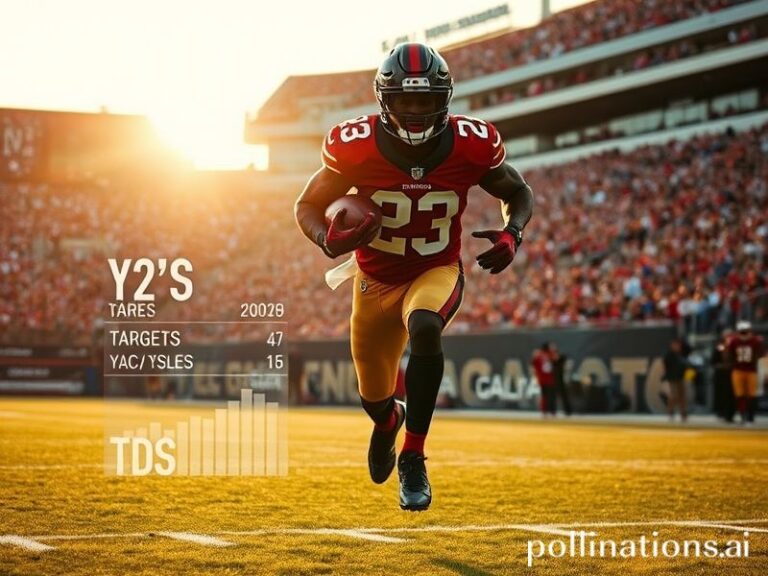dennis allen
Dennis Allen, the man who currently occupies the New Orleans Saints’ head-coaching throne, is—depending on the week—either a misunderstood defensive savant or the latest sacrificial middle-manager in a league that devours them faster than a Bangkok street vendor devours profit margins. To the global observer, Allen’s journey from Alameda County’s gridiron gutters to the air-conditioned interrogation rooms of NFL Films is less a testament to the American Dream than a cautionary tale about the perils of being promoted just high enough to be blamed for everything.
Allen’s résumé reads like a passport stamped mostly in red ink. Before the Saints, he helmed the Oakland Raiders—an organization then so dysfunctional that even FIFA executives winced in sympathy. His cumulative record there (8-28) is the sort of number that would trigger a coup in most countries, yet in the NFL it merely qualifies you for a lateral move. The Raiders, a franchise that once tried to trademark “Commitment to Excellence” while simultaneously committing to mediocrity, fired Allen mid-season, proving that even the chronically inept occasionally tire of their own reflection.
Abroad, this cycle—fail upward, rinse, repeat—plays out differently. Imagine a European football manager surviving a 22% win rate. He’d be exiled to a Kazakh mining town to coach adolescent goalkeepers with nicotine habits. In the NFL, Allen was handed the Saints’ defense, a unit previously coordinated by himself, thereby completing one of life’s rare feedback loops of self-recrimination.
The Saints, of course, are not just any franchise; they are Louisiana’s weekly referendum on existential hope. Post-Katrina, the team became a civic antidepressant, Drew Brees its Prozac in cleats. When Brees retired, the organization faced the same dilemma as any post-colonial power evacuating its profitable colony: How do you keep extracting value once the charismatic viceroy has left? Enter Allen, promoted in January 2022, tasked with turning a carnival float into a Tesla.
Globally, the optics are familiar. Power vacuums breed caretakers who discover that caretaking is merely slow-motion scapegoating. In South Korea, they call it “gapjil”; in the NFL, it’s “organizational patience.” Allen inherited a salary-cap straitjacket, a roster aging faster than Vladimir Putin’s approval rating, and a fan base that still measures success in jazz-fueled Super Bowl parades. His first season (7-10) was hailed in New Orleans as “transitional,” a term also beloved by French bureaucrats explaining why the trains still don’t run on time.
Yet there is something almost noble in Allen’s persistence. He speaks in the measured cadences of a man who has read the entire corporate handbook and still believes somewhere in the footnotes is a loophole labeled “miracle.” His defenses, statistically stout, are like Swiss banks—secure but utterly joyless. Offensively, the Saints oscillate between inspired and insipid, a geopolitical metaphor for any nation trying to liberalize without losing its identity.
Internationally, the Allen narrative resonates because it mirrors every mid-tier technocrat propping up an aging superpower. Whether you’re managing the Sri Lankan rupee or the Saints’ red-zone efficiency, the brief is the same: delay collapse long enough to collect a pension. Allen’s weekly press conferences have the weary tone of a UN peacekeeping spokesman explaining why the ceasefire lasted exactly forty-three minutes. “We’ve just got to execute better,” he says, which translated from coach-speak means “If anyone has a better idea, my LinkedIn is open.”
Meanwhile, sportsbooks from Macau to Malta list Allen as the fifth-most-likely coach to be fired this season, right behind several men who have already been fired. It is a testament to the NFL’s global reach that a 50-year-old from Atlanta, Georgia, can become a trending topic in Manila simply because a kicker shanked a 37-yarder. Such is the world we’ve built: interconnected enough to export American mediocrity, cynical enough to gamble on its expiration date.
Conclusion: Dennis Allen’s story is not really about football; it’s about the universal human habit of elevating competent middle managers to positions where competence alone is insufficient. From Brussels to Baton Rouge, we keep installing new pilots in nosediving aircraft and then feign surprise when the ground refuses to negotiate. Allen may yet salvage the Saints, or he may join the ever-growing fellowship of ex-coaches cashing buyout checks on Caribbean beaches. Either way, the league—and the planet—will keep spinning, propelled by the same grim optimism that insists next year will be different, even when all evidence points to a perfectly executed rerun.







